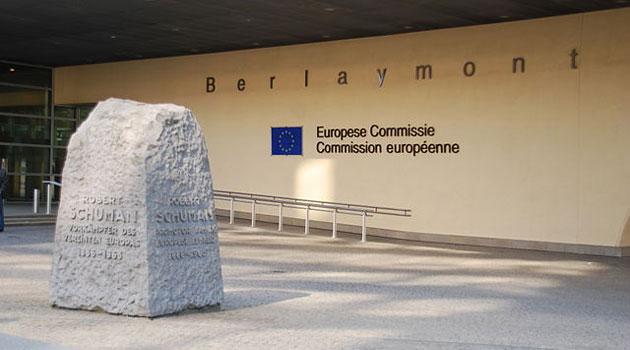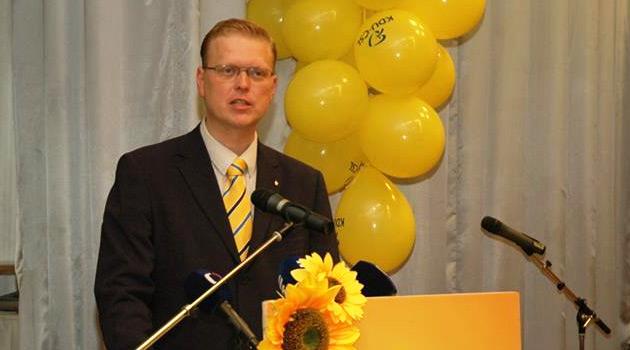Czech Republic has one month to explain its refusal to redistribute refugees to European Commission

Czech Prime Minister Bohuslav Sobotka (Czech Social Democratic Party – ČSSD) called “standard procedure” the step taken by the European Commission on 26 July to send the Czech Republic, Hungary and Poland its “reasoned opinions” about the fact that those countries are not meeting their obligations with respect to the program for redistributing asylum-seekers according to established quotas. In a press release addressing the issue, the PM repeated the Czech Republic’s refusal to redistribute the asylum-seekers and the Government’s reasons for refusing.
The European Commission sent the so-called “reasoned opinions” to Budapest, Prague and Warsaw and gave those Member States one month to respond. This is the second phase of a proceedings that could end with a lawsuit before the European Court of Justice if the Commission does not receive an answer or does not consider the explanation given satisfactory.
The court could decide to levy a one-time fine or repeated penalties until a Member State begins to fulfill its obligations. Czech Interior Minister Milan Chovanec (ČSSD) said the Czech Republic will now review the Commission’s standpoint.
“There will probably not be anything else we can do but defend our position in court,” Chovanec tweeted in response to the news. Sobotka recalled in his press release that the Czech Republic has repeatedly warned that in its view, the quota system is dysfunctional.
“As of June of this year the relocations have just a 15 % success rate and most Member States have a problem with fulfilling them,” the PM said. The failure of the implementation of the quotas, according to Sobotka, underlines the fact that the asylum-seekers who are relocated frequently then move to more developed states, pursuing a vision of a better life.
The Czech Republic advocates for a solution that will aid with “permanently” resolving the issue of “illegal” migration, Sobotka said. “We have always insisted on the necessity of strengthening the protection of our external border so the EU would be able to defend itself against illegal migration onto its territory,” he said.
The PM also recalled that the Czech Republic is aiding the most-afflicted Member States of the EU and third countries financially, with personnel, and with technology. The vice-chair of the Civic Democratic Party (ODS), Alexandra Udženija, criticized the Commission’s step as reckless.
“I do not see any justification for a sovereign state to be forced to receive refugees on the basis of centrally-established quotas which, moreover, have demonstrated their dysfunctional nature and against which we voted,” she wrote to the Czech News Agency. She said she sees the Commission’s approach as an effort to turn the countries of the Visegrad Four into scapegoats for why the quotas are not working.
The two-year program was approved in September 2015 against the will of the Czech Republic, Hungary, and several other countries and assumed a total of 120 000 persons would be moved from the two southern countries overburdened by the migration countries, Greece and Italy. Hungary and Slovakia filed a lawsuit at the European Court of Justice against the decision, but an Advocate General has recommended the Court’s judges reject their suit.
The Czech Government decided at the beginning of June not to receive any more asylum-seekers from Greece and Italy on the basis of the EU quotas. Prague called the EU system dysfunctional and also justified its step by referring to the deteriorating security situation in Europe.
The Czech Interior Ministry has also begun to work on its defense for the proceedings now underway against it by the European Commission. The next phase of the proceedings against the Czech Republic, Hungary and Poland has now officially begun.
Dimitris Avramopoulos, European Commissioner for Migration, Home Affairs and Citizenship, announced that transition to journalists Wednesday. He made it unambiguously clear that the only satisfactory answer for the Commission would be if those particular Member States adjust their approach toward receiving asylum-seekers through the quotas.
The proceedings were launched against the three Member States in mid-June. At that time they were also given one month to respond.
Prague sent a letter on 13 July rejecting the Commission’s reproaches and alleging that the Greek and Italian authorities were not cooperating enough. None of the answers sent to the Commission, however, stated that the Member States concerned would quickly begin receiving asylum-seekers and thereby fulfilling their obligations, Avramopoulos told journalists.
Far more Member States than just the three involved in the proceedings are said to be behind on fulfilling their quotas. Avramopoulos has repeatedly asked all Member States to accelerate the redistribution.
According to recent numbers published by the Commission, of the predicted number of 120 000 people, a total of just 24 676 people had been redistributed throughout the EU as of 24 July, 16 803 of them from Greece and 7 873 from Italy. However, the Commission is not justifying its steps against the three Member States at risk of being sued by arguing that they have received very few (or no) asylum-seekers.
The Commission is basing its approach on the fact that these Member States never offered any reception places to the program on a quarterly basis as they were meant to, according to the agreement – and as the other Member States are doing. “There is still time for correction. All of us would benefit from that. I am sorry that we are where we are. I hope rationality will predominate in this final phase,” Avramopoulos said.
“As soon as the states adjust their positions, this legal procedure will end. It’s up to them,” the Commissioner said.
According to the Commission there are about 4 800 persons currently awaiting redistribution in Greece, but that number will probably grow to more like 6 800. More immigrants keep arriving in Italy as well.
Citizens of Eritrea, for example are eligible for inclusion in the program, and about 25 000 of them have arrived in Europe since the beginning of last year, but just about 10 000 have been registered. The program ends on 26 September 2017, after which no other asylum-seekers who arrive in either Greece or Italy will be able to be included in the plan.
According to the Commission, however, the Member States will still be legally obligated to receive, according to the quotas, those persons entitled to inclusion in the program who made it to Greece and Italy by that deadline. The Czech Republic, according to the quotas, is responsible for offering 2 691 places, but according to the Commission’s statistics, Prague has received just 12 persons from Greece through the program.
Avramopoulos expressed appreciation for the fact that many Member States are fulfilling their obligations – for example, both Latvia and Malta have fulfilled their quota of redistributed asylum-seekers from Greece. Norway, which is not an EU Member State but is an associated country to the Schengen Area, has voluntarily relocated from Greece all of the asylum-seekers it was meant to, according to the system.
According to the Commissioner, June was a record month for asylum-seeker redistribution, with more than 3 000 asylum-seekers relocated, and if that tempo persists, it allegedly will be possible by the end of September to say the program was successful. If that happens, no more such programs will be necessary, the Commissioner noted.
Spain did not begin receiving asylum-seekers until last month, but has already met almost 60 % of its quota. The Commission also welcomed the faster pace at which Germany has begun to receive asylum-seekers through the quota system.
